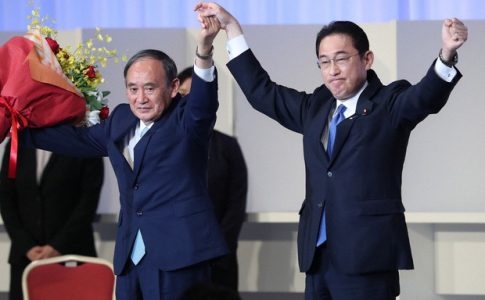At the October 10th Economic and Fiscal Advisory Council meeting, focused on economic measures, BNP Paribas Securities member Mana Nakasora, known for her fiscal conservatism, asserted it was time to revert Japan’s finances to normalcy post-pandemic. Finance Minister Shunichi Suzuki echoed this, emphasizing the need to focus on normalcy. Yet, this rhetoric seems disconnected from global realities.
Just days before Nakasora’s statement, Hamas launched attacks on Israel, a stark reminder that global conflicts like the ongoing Russia-Ukraine war directly impact Japan through surging energy and food prices, inducing cost-push inflation.
While the pandemic may be receding, with COVID-19 reclassified in Japan from Category 2 to 5 in May, the resulting inflation we see is not just a reverting to normalcy but a consequence of supply chain damages and skyrocketing demand. The idea that we’re transitioning to “peacetime” economics seems naive, given the persistent geopolitical tensions and economic challenges.
The fiscal conservatives, seemingly oblivious to the vast geopolitical shifts, overlook the significance of the post-1990 world order. Following the Soviet Union’s collapse, the US became the dominant global power, as outlined vividly by Zbigniew Brzezinski in “The Grand Chessboard” (1997). He highlighted America’s strategy to surround Eurasia through NATO, alliances with Middle Eastern countries, and the Japan-US alliance, aimed at containing Russia, Iran, and China.
Now, the landscape has shifted. US influence has waned post-Iraq War and the 2008 financial crisis. Biden’s focus on Asia-Pacific to counter China signifies a shift in global power dynamics. However, Russia’s invasion of Ukraine and Hamas’s aggression towards Israel have stretched America’s geopolitical focus, benefiting China’s aspirations for Taiwan and signifying a nightmare scenario for US hegemony.
In this “polycrisis” era, where crises interlock and amplify globally, Japan’s adherence to “normalcy” seems out of touch. The economic measures discussed, though substantial, should be part of regular budgets, not just emergency responses. We are in an era of “big government,” as nations globally adopt expansive policies post-pandemic.
Fiscal conservatives might argue that Japan risks financial ruin with these policies. However, the pandemic proved that large-scale fiscal intervention doesn’t necessarily lead to hyperinflation or uncontrolled interest rates. With Japan issuing all its bonds in yen, fiscal collapse is a distant concern.
The current inflation is primarily cost-push, not demand-pull, thus justifying stimulus measures like cash handouts and tax cuts. In combating this “polycrisis,” we need expansive fiscal measures: strengthening defense, addressing climate change, disaster management, social security, and more.
In conclusion, the real crisis isn’t fiscal but the persistence of fiscal conservatives who hinder comprehensive approaches to global challenges. Japan’s fiscal stability is not in jeopardy; it’s the reluctance to adapt to the polycrisis era that poses the greatest threat.












Leave a Reply